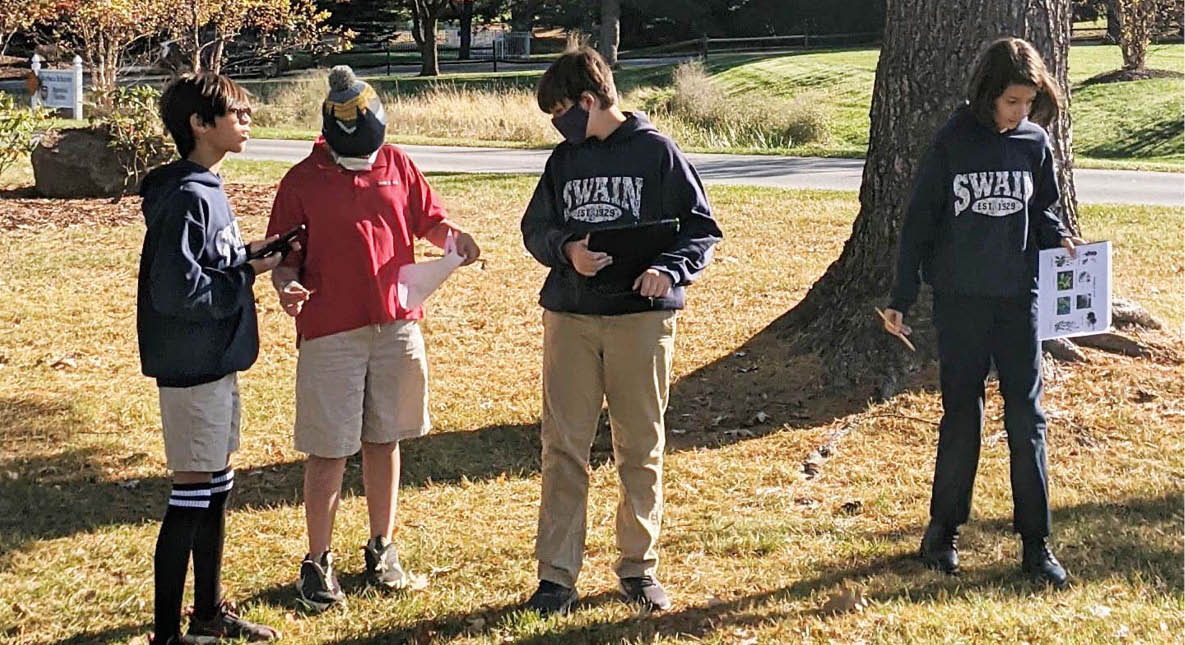Why did humans shift from foraging to farming?
Why did humans shift from foraging to farming? That is one of the questions Swain sixth graders are seeking answers to as they study the history of ancient civilizations in Humanities class. After learning that researchers found the bones of farmers to reveal more diseases and less health than the bones of foragers, students wondered why humans would choose to be farmers. The foraging activity held on the Swain campus during class meeting time helped the students draw some conclusions as to why some early humans made this choice.
Students merged their knowledge of foraging with their identification skills studied in Science. Our recent unit used dichotomous keys & observable traits to study the classification of organisms. In this activity, they worked in pairs to find, correctly identify, and photograph six edible plants on campus based on a key provided. We added a bit of uncertainty to the activity by asking them to photograph three additional plants that they thought would be edible. Once we reconvened the class was divided into groups based on whether their choices were edible, cautiously edible, or non-edible. We continued our activity with discussions about the benefits and harms of different plants, deadly lookalikes, and the importance of proper identification.
During Humanities, the students wrapped up this conversation by connecting their experience to the trials of early foragers. Why did humans shift to farming? I guess you’ll have to ask a 6th grader to find out.
It is important to note that you should never eat anything in the wild without an expert with you. No plants were consumed during this activity.


 myMA
myMA











